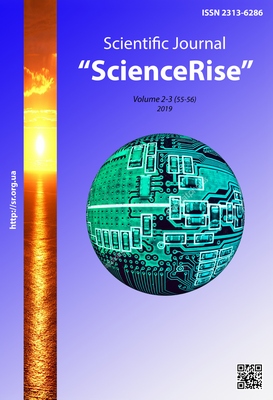The period of the global cycle of the financialized economy
DOI:
https://doi.org/10.15587/2313-8416.2019.163103Keywords:
Globalization of economy, transnationalization, financialization, financial crisis, global economic cycles, period of the economic cycleAbstract
The article examines the relationship between financialization of economies of the leading countries of the world and the nature of the modern global economic cycle. Due to financialisation of the modern economy financial markets became the generators of the business cycle. Exactly the instability of financial markets provokes a business cycle. The authors of the article suggest that due to certain laws of functioning of the stock market it is possible to predict the period of the global economic cycle which will prevent its devastating impact on the world economy
References
Filatova, L. S., Bardadin, O. A. (2016). Theory of cyclicity. Investments: practice and experience, 13, 79–82.
Romer, D. (2011). Real-Business-Cycle Theory. Advanced Macroeconomics. New York: McGraw-Hill, 189–237.
Tivonchuk, I. O., Steciuk, P. I., Tyvonchuk, O. I. (2011). Financial crises: an analysis of the causes and mechanisms of their manifestation. Visnyk Natsionalnoho universytetu "Lvivska politekhnika". Problemy ekonomiky ta upravlinnia, 698, 112–118. Available at: http://ena.lp.edu.ua/bitstream/ntb/10914/1/16.pdf
Tkachenko, A. M., Kalyuzhna, Yu. V. (2013). Crisis: the essence, classification and causes of occurrence. Theoretical and practical aspects of economics and intellectual property, 2 (1), 122–126. Available at: http://journals.uran.ua/index.php/2225-6407/article/view/18985
Perepiolkina, O. O. (2012). Global financial crises in the world economy. Visnyk of Lviv Commercial Academy. Economics series, 39, 129–134. Available at: http://nbuv.gov.ua/UJRN/Vlca_ekon_2012_39_31
Pelyo, A. B. (2013).Virtualization of the world financial market as the main determinant of development of the modern international monetary system. Theoretical and practical aspects of economy and intellectual property, 3 (1), 159–163. Available at: http://journals.uran.ua/index.php/2225-6407/article/view/21884
Eichengreen, B. (2018). The Global Financial Crisis and the Lesson-Drawing Problematique. Available at: https://www.houseoffinance.se/wp-content/uploads/2018/03/Barry-Stockholm-Nobel-Symposium-2018.pdf
Vieira, F. V. (2011). The new international financial crisis: causes, consequences and perspectives. Revista de Economia Política, 31 (2), 217–237. doi: http://doi.org/10.1590/s0101-31572011000200003
Palamarchuk, M. V. (2011). Global economic cycle and synchronization of the current world recession. Economic Chronicle-XXI, 3-4, 24–27. Available at: http://dspace.nbuv.gov.ua/bitstream/handle/123456789/47576/07-Palamarchuk.pdf?sequence=1
Bernanke, B. (2018). The real effects of the financial crisis. Brookings papers on economic activity. BPEA Conference Draft, 90. Available at: https://www.brookings.edu/wp-content/uploads/2018/09/BPEA_Fall2018_The-real-effects-of-the-financial-crisis.pdf
Marichal, C. (2009). World Financial Crises: Lessons of the Past. Finance & Bien Commun, 2-3 (34-35), 34–52. doi: http://doi.org/10.3917/fbc.034.0034
Goldstein, I., Goldstein, A. (2015). Three Branches of Theories of Financial Crises. Foundations and Trends in Finance, 10 (2), 113–180. doi: http://doi.org/10.1561/0500000049
Alvaro, C. (2005). Macroeconomic Foundations of Macroeconomics. London: Routledge, 368. doi: http://doi.org/10.4324/9780203022788
World Bank Open Data. Available at: https://data.worldbank.org/
Richard, T. (2018). Misbehaving: The Making of Behavioral Economics. Kyiv: Nash Format, 464.
Downloads
Published
Issue
Section
License
Copyright (c) 2019 Sergiy Vasilchenko, Taras Malyshivskyi

This work is licensed under a Creative Commons Attribution 4.0 International License.
Our journal abides by the Creative Commons CC BY copyright rights and permissions for open access journals.
Authors, who are published in this journal, agree to the following conditions:
1. The authors reserve the right to authorship of the work and pass the first publication right of this work to the journal under the terms of a Creative Commons CC BY, which allows others to freely distribute the published research with the obligatory reference to the authors of the original work and the first publication of the work in this journal.
2. The authors have the right to conclude separate supplement agreements that relate to non-exclusive work distribution in the form in which it has been published by the journal (for example, to upload the work to the online storage of the journal or publish it as part of a monograph), provided that the reference to the first publication of the work in this journal is included.

